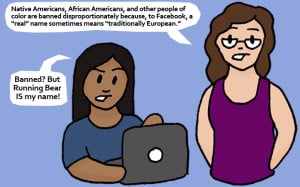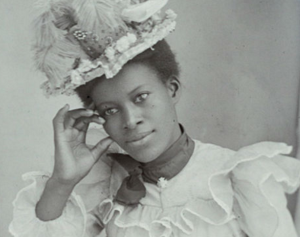
Source: V Motivation
Originally published on Daily Life and cross-posted here with the author’s permission.
Last night, my partner’s family e-mailed me to see if we were coming to a birthday event. “Why are they e-mailing me?” I asked.
“Because you’ll remember and get organized, whereas they know I’ll just forget,” he said.
It’s not just birthdays. I’m the go-to person for family counseling, fridge re-stocking, remembering which friend has what dietary requirement at dinner, and when the cat’s vet day is.
When did I suddenly become so indispensable?
But when I look around my friends, I see a lot of women who were indispensable in their workplaces, families, and social groups.
I asked a male friend if he felt the need to be indispensable. After a thoughtful pause, he replied, “I guess I’ve got two priorities.” Work and family?
“Number 1. Doing as little unnecessary work as possible. And the other one depends on whether I’m hungry or horny.”
While my friend’s attitude hasn’t stopped him from progressing, somewhere along the line, women have come to believe that if we’re indispensable, we’ll be rewarded.
And somewhere we’ve given the impression that we’ll settle for compliments and approval instead of cash.
A friend of mine, a successful writer, knows this phenomenon only too well. “I get letters all the time saying ‘I love your work, now can you edit/help me write my book for free because I think you’d really enjoy it?’”
Her partner, also a writer, gets fan letters and paid job offers, but no requests to work for free. “Is the assumption that he’s too busy? Or is it just that people think I’ll have endless time when it comes to being useful to others, because that’s what nice women do?”
Oddly enough, the people from whom I most feel pressured to be accommodating are other women, not just socially (my partner is apparently incapable of deciphering “bring a plate”), but also professionally.
An editor I used to freelance for told me she’d budgeted $400 for my story, “but it would be amazing if you could help me out and do it for $300.” Why would I need cash when I could be called amazing? Funnily enough she never tried the “because you’re a nice person” card on my male colleagues.
“It was a shock to realize that looking after everything as I’d been taught to had left me a seething ball of resentment with a crap income and chronic stress,” says my friend Marnie, an online entrepreneur. “It was only when I let everything go to hell in a hand basket that my business took off and my health improved.”
How to be utterly dispensable and happier for it?
1. Get Used to Not Being Liked
If being liked feels addictive to you, then having someone “disappointed” in you is like kryptonite.
“If you’re meeting everyone’s expectations, you’re not going to be meeting your own,” says Marnie. “Build up your tolerance for letting people down. Not caring if others think you’re a nice person doesn’t mean you suddenly morph into some nightmare megabitch. It means you act in accordance with your own values and less in accordance with the values of others.”
2. Let Things Fall Apart in Small Doses
“We have this fear that if we don’t do it, it won’t get done. It’s painful to let things crumble around us, but worth it for long term gain. So a few people don’t get birthday cards for a while, and someone doesn’t have a matching pair of socks. Do you have matching socks? Yes? Then you’re all good.”
Channel Jessica Stillwell, The US woman went on household strike until her family started cleaning up after themselves.
Sure, new life forms appeared in the kitchen, but her kids eventually picked up the slack.
3. Don’t Do for Others What They Can Do for Themselves
“In being indispensable, we’re denying others the chance to learn and take responsibility. How do you teach people to make their own breakfast and press the buttons on the washing machine? You let them wear stinky t-shirts and go hungry and for a few days,” says Marnie.
4. Be Kind Because You Want to – Not Because You Have To
Being indiscriminately indispensable breeds resentment.
“If you’re doing something you don’t want to do because you think that’s it’s expected of you, it lacks grace,” says Marnie.
“I retrained my family not to expect me to turn up to everything. Sure, they thought I was anti-social for a while, but now when I go to things I’m genuinely happy to see everyone, rather than faking happy and feeling like a tired, grumpy martyr.”
5. Value Your Own Stuff – Be It Work, Hobbies, or Free Time
Won’t pursue a hobby or interest because “family/kids/partner won’t give me the time?”
If we wait for other people to value our interests or give us permission to follow them, we’ll be waiting forever. I invented a weekend yoga class I had to teach which was actually “sitting in a café reading.”
Marnie saw this firsthand when she was first trying to get her business off the ground.
“There was the idea that I could drop what I was doing any time someone needed me, because my business was ‘just a hobby,’ and I wasn’t earning any money from it. I had to decide to see that work itself as indispensable, even if others couldn’t. What I lost short-term in other people’s approval, I gained in self-worth.”
“The people in my life,” she continued, “just had to figure their own shit out for a while, which they did. I guess it made me realise I was more dispensable than I thought! And infinitely happier for it.”
***
To learn more about this topic, check out:
- 4 Ways to Know Yourself and Find What You Need
- 3 Things to Remember When You Can’t Stop Being Hard on Yourself
- 3 Steps Toward Changing Your Relationship with Something You Don’t Like About Yourself
- 5 Ways To Take Care Of Yourself Today
[do_widget id=”text-101″]
Alice Williams is a Melbourne author and yoga teacher. She also writes for the Daily Life website and teaches Media Writing at the University of Melbourne. In her spare time she enjoys fixing toasters and reading about unlikely assassins. You can check her out on her website and on Twitter @AliceWillalice.
Search our 3000+ articles!
Read our articles about:
Our online racial justice training
Used by hundreds of universities, non-profits, and businesses.
Click to learn more




















